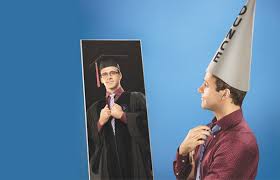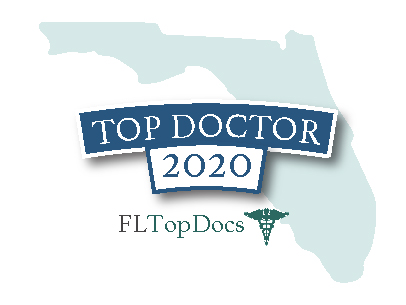
We have “young gun” newly elected politicians with little knowledge of history or the political process itself pushing legislation and policies that are either patently unrealistic, absurd, or simply modern sounding versions of tired, failed ideas of the past. The poster child for this seems to be Alexandra Ocasio Cortez who utters idiotic ideas with a level of confidence that I can only envy. What is truly frightening is that she now has a platform from which to spout her inanities and a small but real audience of equally clueless followers.
For nearly thirty years, I have kept a postcard-sized note in a small plexiglass stand where I can see it every day. It says “There has been an alarming increase in the number of things I know nothing about.” This might give some of my patients pause. After all who wants to think their doctor doesn’t know everything, at least within their own profession?
I just completed my thirtieth annual in-service exam. This a comprehensive, self-assessment exam covering all areas of plastic surgery. Residents in training take this exam as part of the certification process to become board-certified plastic surgeons. I take it because it provides 37.5 hours of continuing education credits, which I need to maintain my standing as a board-certified plastic surgeon. It contains 250 questions with a disproportionately high percentage of them about arcane anatomy, embryology, physiology, and ultra-specialized procedures performed by relatively few plastic surgeons. I have never found it representative of what I do every day in clinical practice, perhaps because most of the questions come from academic surgeons. Even so, the exam is humbling in showing me how little I know of my own specialty. I always approach my day with a little more humility after taking this exam.
Charles Darwin is reported to have said, “Ignorance more frequently begets confidence than does knowledge.” My experience supports this. I can safely say that I had more confidence when I was freshly out of training than I do now. That is not to say I lack confidence; it is a critical feature in a profession that involves cutting people open for a living. The archetypical surgeon is someone who is supremely confident. With years of practice experience and, yes, maturity, however, that confidence becomes tempered with humility. The surgeon whose confidence is not reigned in, in this fashion frightens me. Just when you think you know it all, a case comes along that humbles you. People are extraordinarily complex. Although rare medical conditions are seen infrequently, what is not rare is for unusual presentations of common conditions. You can do the same operation countless times, with good outcomes, and then encounter that one patient who deviates from the norm in unusual and unexpected ways. Malpractice attorneys seem to overlook this small, but important, fact in deeming an adverse outcome as de facto malpractice.
One disturbing trend in medicine is to see it as something that can be practiced by the application of formulas and computer templates, as though people are all the same. Because the majority of patients fall within the center of the bell-shaped curve, this works much, if not most, of the time. It can breed unmerited confidence, especially in those who are not trained to recognize how little they actually know. I believe the most difficult and demanding area of medicine is general practice. The family doctor and internist who provide for primary medical care to patients must have the broadest fund of knowledge, honed by experience treating thousands of patients. Now, we are more and more turning this area of medicine over to what are euphemistically called “mid-level” providers. These are nurse practitioners and physicians assistants. Their education and training are greatly limited compared to physicians. Even a fourth year medical student has more hands on patient care experience than either of them. Nursing training, in particular, is not directed to pathophysiology of disease, diagnosis, and prevention or treatment but, rather, to patient care once the diagnosis is made and a care plan ordered, by a physician.
Despite these limitations, many nurse practitioners and physicians assistants feel competent to render primary care of patients on equal footing with physicians. This is a classic example of the Dunning-Kruger effect, which states that people, especially those with lesser education, believe they are smarter and more competent than they really are. Put another way, they don’t know enough to really appreciate what they do not know. Ironically, this cognitive bias often breeds an unmerited level of confidence. I have seen this often. A physicians assistant, whose training is very limited, learns on the job in a limited area and gradually comes to conclude that he or she is equal to the specialist whose training and experience far exceeds their own. A nurse practitioner with essentially no patient care experience but with her newly granted credentials assumes the role of primary care provider in an urgent care center, overseeing two medical assistants, whose training is to hers what hers is to a physician.
As I approach middle age (after all, 66 is the new 45, isn’t it?) I cannot but wonder, and worry, about the quality of care that my wife and I will receive when we finally enter the medical world on the receiving end, as geriatric patients.

In an unrelated aside, I see the same devolution of competence and education in the political sphere. We have “young gun” newly elected politicians with little knowledge of history or the political process itself pushing legislation and policies that are either patently unrealistic, absurd, or simply modern sounding versions of tired, failed ideas of the past. The poster child for this seems to be Alexandra Ocasio Cortez who utters idiotic ideas with a level of confidence that I can only envy. What is truly frightening is that she now has a platform from which to spout her inanities and a small but real audience of equally clueless followers.





